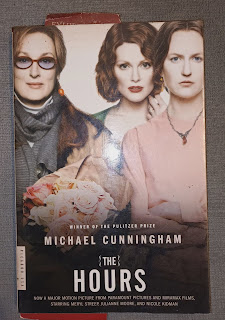Today I read a short story from the Philippine Free Press, by a prolific writer of short stories who has won many times in the Free Press' Fiction writing contest. After reading the short story, I googled the author and looked for other stories posted somewhere in the net. Lately, I've been doing this, reading short stories by Filipino authors and then googling to find other short stories, trying to study how those stories were written and what they were about.
I have also been re-reading old and new short stories by foreign authors. Some of the old books which remain in my collection were assigned to us for study when I was taking up AB English - a long, long time ago (includes the general classic collections: A Pocket Book of Short Stories; Great Modern European Short Stories; 75 short masterpieces etc.). My professors then, all of them were not writers, taught us that a short story must have a beginning, a middle, and an end. Of course there should be conflict, action should rise to a climax and then there should be a falling action, a denoument. Then short stories, they said, are categorized into "plot driven" and "character driven". In those college years, we were required to evaluate these ancient classics into these categories, using the simplest definition.
But if anything, I realized that If I were to write a short story, I would like to aim for that element of surprise - that one inevitable feeling which comes right after reading a story, and that rising interest that goes up and up and up as one reads. This is something I see in many short stories by Butch Dalisay. Incidentally, this is also something I see in some of my favorite classic films, a good story that has a single effect, AND a definite "Yes!" ending. "Yes," because there could be no other ending except that ending and "Yes," because It ends.
The short story I read today was something that did something else - it aroused empathy. This other effect could be another area of study - how to make readers feel for the characters. If there is anything at all that needs commitment in a short story, it is probably the creation of a reason and motivation for a character's behavior, the drama that could be merely implied but underlines the whole, and this, without getting sentimental. My professors in fiction workshop, (part of the creative writing course) were dogmatic on this - don't be sentimental, they said, and this is quite a task when writing fiction since you're dealing, with, what else but emotions. What they do in 'unsentimental' fiction is that they draw the emotions, a task that can only be achieved if one is fluent in the language used and has a complete grasp of the idioms and metaphors required.
In other short stories I read, the characters were simply presented, without an unveiling of past or present drives. I didn't like many stories by Checov because they left me with a frown and always, a question - so? Those stories left me wanting, and while reading, I kept thinking about when things would finally happen.
Writing fiction is quite a challenge. But well, I had time to write today, and so I drafted something which begins with : When she left the town, Sinang Canisales, five feet four inches tall, weighed one hundred and ten pounds...
(I remember Ricky Lee's book about writing; he says that there are many ways by which you can reach Qiapo....)
What happens next to my beginning is up to whether I am learning anything at all in reading short fiction.
Subscribe to:
Post Comments (Atom)
“The Hours” by Michael Cunningham: Time, Identity, and the Echo of Virginia Woolf
When I first read The Hours , I didn’t know a novel could hold so many worlds in a single breath. Michael Cunningham’s Pulitzer-winning b...

-
[ Filipiniana Book Shelf series focuses on books on the PAWR library - that is, bought books that have been read and are being re-read jus...
-
When I first read The Hours , I didn’t know a novel could hold so many worlds in a single breath. Michael Cunningham’s Pulitzer-winning b...


No comments:
Post a Comment